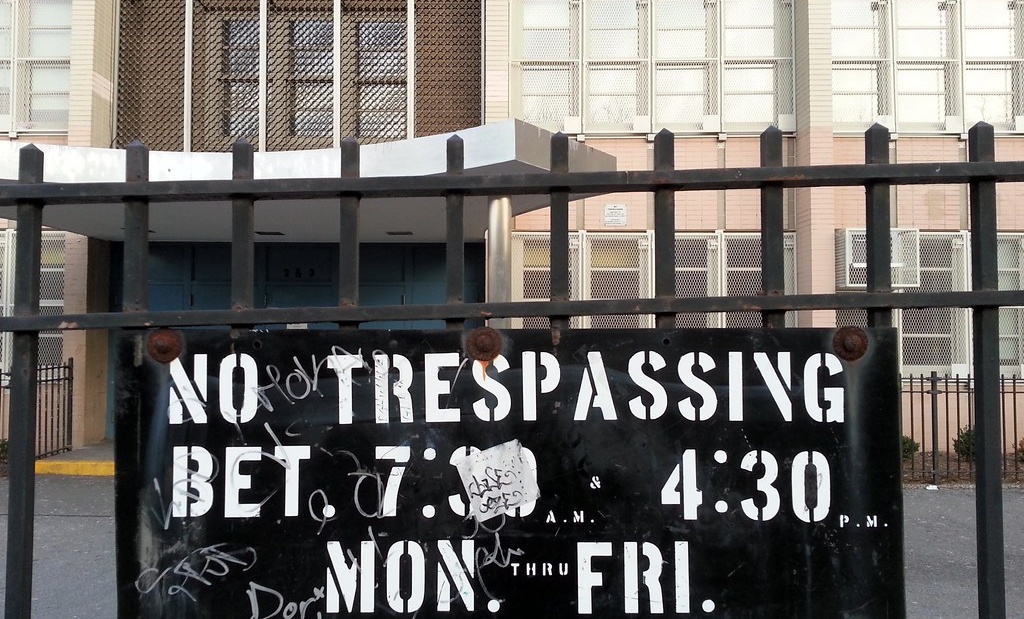This article examines certain aspects of the criminal charge of trespass. It is for general information only and should not be relied on for specific legal advice. The author will not be held responsible for any action that a person takes as a result of interpretation of the contents of this article. It is important to seek specific advice from a qualified and experienced lawyer for any legal problem.
What is Trespassing?
In Queensland, trespassing is defined as the offence of unlawfully entering or remaining in a dwelling or the yard of a dwelling of another. ‘Entering unlawfully’ means to enter without authorisation, justification, or an excuse accepted by the law.
An example of individuals who have a lawful reason to enter into someone’s house, yard, or business premises, excluding Police Officers and First Responders acting in the execution of their duty or a legitimate door-to-door salesperson who enters a yard in the execution of their work duties.
Trespass charges are usually dealt with in the Magistrates Court, or can be referred to Justice Mediation for an alternative dispute resolution.
Police have discretion when deciding to charge a person with the offence of trespass. If you intentionally entered a person’s yard without a reasonable excuse then you could be found liable for this offence. If however you accidentally entered the wrong yard believing you were going to your friend’s house you would likely have a reasonable excuse. This will depend entirely on the circumstances of the case.
The Law in Regards to Trespass
Section 11 of the Summary Offences Act (Qld) states;
(1) A person must not unlawfully enter, or remain in, a dwelling or the yard for a dwelling.
(2) A person must not unlawfully enter, or remain in, a place used as a yard for, or a place used for, a business purpose.
Elements of the Offence of Trespass
It is the duty of the prosecutor to prove beyond a reasonable doubt that the Defendant has committed trespass. Every trespass charge has a number of elements that the Prosecutor must prove beyond a reasonable doubt. For the charge of Trespass the Prosecution must prove;
- Defendant – The Prosecutor has to prove the identification of the offender;
- Entered or remained at the property – that was a private or business dwelling or yard of a dwelling
- Of Another;
- Without lawful excuse – justification or authorisation to allow you to be at the property
Maximum Penalty for Trespass
The maximum penalty for trespass offences is 1 year’s imprisonment or a fine of 20 penalty units.
Punishment for Trespassing
In Queensland, if a person is convicted of Trespass, then the court could impose one of the following penalties:
- Jail (suspended, parole, or actual time);
- Intensive Corrections Order;
- Probation;
- Community Service Order;
- Fines.
The actual penalty will depend on the circumstances of the matter including the severity of the offence and the individual circumstances and background of the Defendant.
Possible Defences for Trespass
There are several defences available for charges of trespass. Not every defence is available to every charge, however. You will need to seek specific legal advice to see if you have a defence available to you for this charge. Some of the common defences available in criminal charges are;
- Necessity;
- Mistake of Fact;
- Public Safety;
- Self Defence or defence of another person;
- Intoxication;
- Provocation;
- Accident;
- Duress;
- Compulsion;
- Insanity;
- Automatism
Which Court will your trespass case be heard in?
The charge of Trespass is heard in the Magistrates Court in Queensland. The charge will be heard and determined by a Magistrate alone whether you plead guilty or not guilty. There is no jury in the Magistrates Court.
What should I do if the police want to speak to me about a Trespass allegation or if I am charged with Trespass?
In regards to the police speaking to you about a trespass charge, you have the right to remain silent. You DO have to provide police with your name, date of birth and contact details. You should NOT answer any questions, make any statement or participate in any interview with the police. You should be polite to the officer but insist that you want to talk to your lawyer. You have the right to telephone a friend, relative or lawyer.
Call a Trespassing Lawyer
If you are charged with a criminal offence, it is very important that you seek immediate legal advice. Our team at Brooke Winter Solicitors can give you over the phone advice. We have a solid reputation as expert Criminal Lawyers and can represent you in court.
Call us on 1300 066 669 if you have any questions. We can assist you no matter where you are located and can appear in every court. Contact us today.





